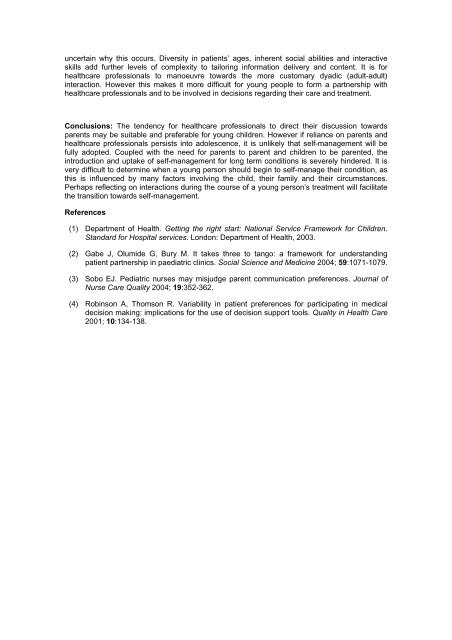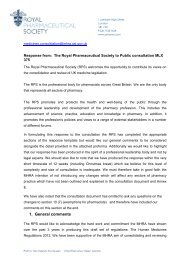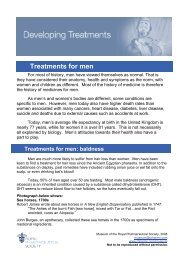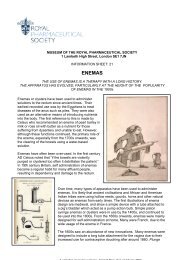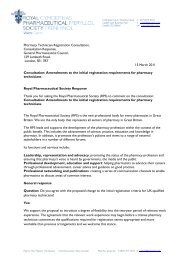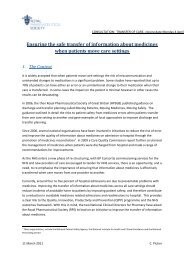RPS Conference 2010, Abstracts 2010 - Royal Pharmaceutical Society
RPS Conference 2010, Abstracts 2010 - Royal Pharmaceutical Society
RPS Conference 2010, Abstracts 2010 - Royal Pharmaceutical Society
Create successful ePaper yourself
Turn your PDF publications into a flip-book with our unique Google optimized e-Paper software.
uncertain why this occurs. Diversity in patients’ ages, inherent social abilities and interactive<br />
skills add further levels of complexity to tailoring information delivery and content. It is for<br />
healthcare professionals to manoeuvre towards the more customary dyadic (adult-adult)<br />
interaction. However this makes it more difficult for young people to form a partnership with<br />
healthcare professionals and to be involved in decisions regarding their care and treatment.<br />
Conclusions: The tendency for healthcare professionals to direct their discussion towards<br />
parents may be suitable and preferable for young children. However if reliance on parents and<br />
healthcare professionals persists into adolescence, it is unlikely that self-management will be<br />
fully adopted. Coupled with the need for parents to parent and children to be parented, the<br />
introduction and uptake of self-management for long term conditions is severely hindered. It is<br />
very difficult to determine when a young person should begin to self-manage their condition, as<br />
this is influenced by many factors involving the child, their family and their circumstances.<br />
Perhaps reflecting on interactions during the course of a young person’s treatment will facilitate<br />
the transition towards self-management.<br />
References<br />
(1) Department of Health. Getting the right start: National Service Framework for Children.<br />
Standard for Hospital services. London: Department of Health, 2003.<br />
(2) Gabe J, Olumide G, Bury M. It takes three to tango: a framework for understanding<br />
patient partnership in paediatric clinics. Social Science and Medicine 2004; 59:1071-1079.<br />
(3) Sobo EJ. Pediatric nurses may misjudge parent communication preferences. Journal of<br />
Nurse Care Quality 2004; 19:352-362.<br />
(4) Robinson A, Thomson R. Variability in patient preferences for participating in medical<br />
decision making: implications for the use of decision support tools. Quality in Health Care<br />
2001; 10:134-138.


